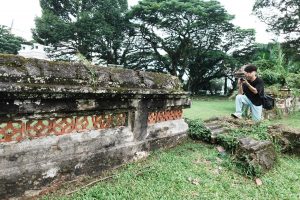We know only that we are kiasu, kiasi, and that we speak Singlish. For those born during the late 80s through to the early 90s, these signifiers mean little beyond the fact that we also count dim sum, roti prata and bak chor mee amongst our supper favourites.
As a young nation of 51 years (of independence), we don’t really have much of a history as a reference point for who we are. Attempts to reframe the country’s history as beginning from AD 1298-99, while incredibly compelling, are unlikely to resonate with younger Singaporeans.
Top concerns for us still revolve around affordable housing, work-life balance and educational opportunities. Few ever cite a disheartening lack of national identity, though we may lament it in passing from time to time. Purpose and self-fulfilment are still consistently tied to careers and families, not the revelation or discovery of patriotic sentiment.
This year, the theme song for National Day rallies Singaporeans with euphonic cries of taking the world by the hand and dreaming away. The anthem exhorts us to stand united, to seize the future together.
At around 1:35, Sara Wee from 53A sings, “When you know just who you are, You can’t stop you’re on fire.” Lines like these are a dime a dozen, and beyond their embroidery and upbeat lyricism, the premise of the song remains loose and hazy.
Who are we? What are we standing together for? Why are we standing together? What are we looking forward to?
For those of us who cannot help but feel distant from this narrative of imagined communities—this metaphorical call-to-arms to endeavour at every moment to do better and be better for our country; to make sense of who we are and what we should believe in—what truly matters is that we want at least to be good people.
In order to tangibly embody abstract concepts like national identity and national pride, we must first nurture our respective individualities before we seek common ground in our differences.
We cannot assume that we love our country, and expect that everything will follow and fall into place. We already know this; we must now embrace the reality that nation building takes time.
Singaporean poet and playwright Alfian Sa’at once said, “If you care too much about Singapore, first it’ll break your spirit, and finally it will break your heart.” At the same time, one would be hard-pressed to find any evidence that he doesn’t, in fact, love Singapore.
In the same way, few of us, if we’re being honest, will admit to any kind of willingness to die for Singapore. But for fragments of it; friends and family, specific hawker stalls in Hong Lim Food Centre, the music of The Observatory, or the back alleys of Joo Chiat and East Coast Road, we might hesitate.
If patriotism and national identity are what we’re aiming for, these little scraps of love are what will get us there.
As long as Singaporeans keep trying to live as people who can think and speak for themselves, who are free to define the boundaries of their own colourfully varied existences, history and identity will take care of themselves.
As Singaporeans might helpfully point out, “This kind of thing, cannot force one la.”






